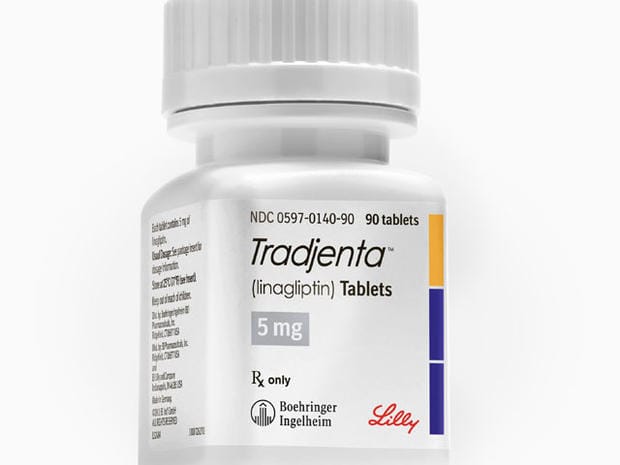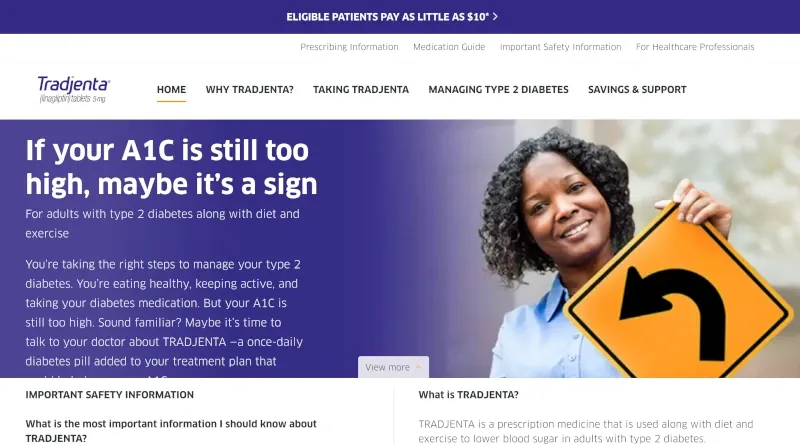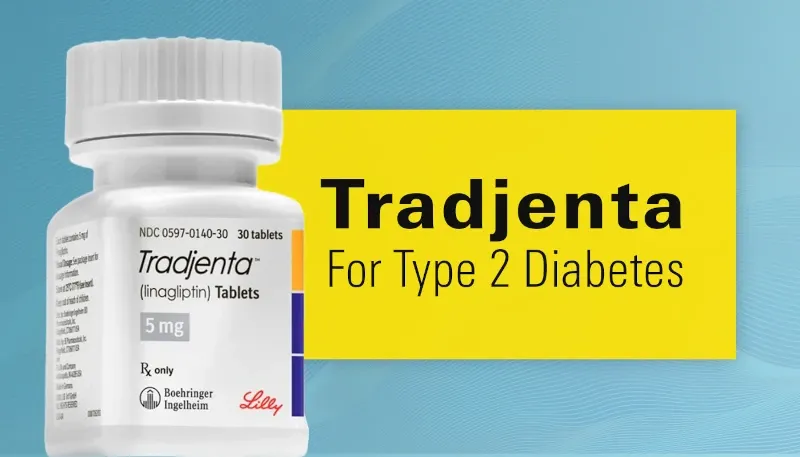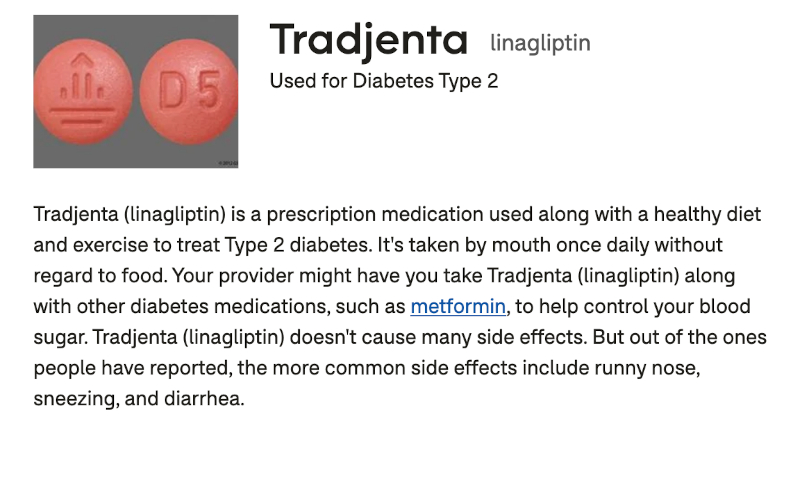Tradjenta: An alternative to GLP1 for Type 2 Diabetes
We take a look at one of the alternatives to GLP1s that has been on the market a long time -- Tradjenta.

GLP1 Receptor Agonists were originally developed and most effective as drugs that help people with type 2 diabetes. While they have other effects (weight loss in particular), the original purpose and widespread use was for diabetes.
Check out our quick explainer
GLP1s aren't the only choice, and sometimes don't work for people so it's important to consider other solutions that are out there as well, for those who are looking to treat type 2 diabetes.
While Tradjenta isn't for weight loss, it's a well known alternative to GLP1 for treating with type 2 diabetes.
What is Tradjenta?
The active ingredient in Tradjenta is Linagliptin:

It's main specialty is treating Type 2 Diabetes, and in particular in combination with diet and exercise (which most primary care physicians will recommend).
Tradjenta was invented by Boehringer Ingelheim, a large german Pharmaceutical company in partnership with Eli Lilly:


Unlike most GLP1s (other than Novo Nordisk's Rybelsus), Tradenta is delivered orally – it's taken as a tablet, once a day.

What are the side effects of Tradjenta compared to other GLP1s?
We've covered the side effects of GLP1s in the past:

And here we lean on Drugs.com's coverage of Tradjenta to see side effects for Tradjenta:
The more common, lighter side effects are:
- Runny or stuffy nose, sore throat
- Cough
- Diarrhea
The more serious side effects are much worse (or more alarming at least) than GLP1s:
- Life-threatening pancreatitis
- Severe or ongoing pain in your joints;
- Severe autoimmune reaction - itching, blisters, breakdown of the outer layer of skin; or
- Symptoms of heart failure - shortness of breath (even while lying down), swelling in your legs or feet, rapid weight gain.
With the effectiveness of GLP1s in reducing Hba1c and helping with Type 2 diabetes, it's clear that the risks of gastrointestinal problems (which can be severe) not only don't go away with Tradjenta, but also add on a few more unwanted side effects: auto-immune reactions, heart failure, and the possibility of rapid weight gain.
How well known is Tradjenta?
Tradjenta has been out on the market for a long time, with great coverage on sites like GoodRx:

Insurers like Kaiser Permanente cover it, and information is quite easy to find:

While it's clearly got some downsides that are not common to GLP1s, for those who GLP1 is not an option, Tradjenta may be worth looking into, after consulting with a primary healthcare provider.









